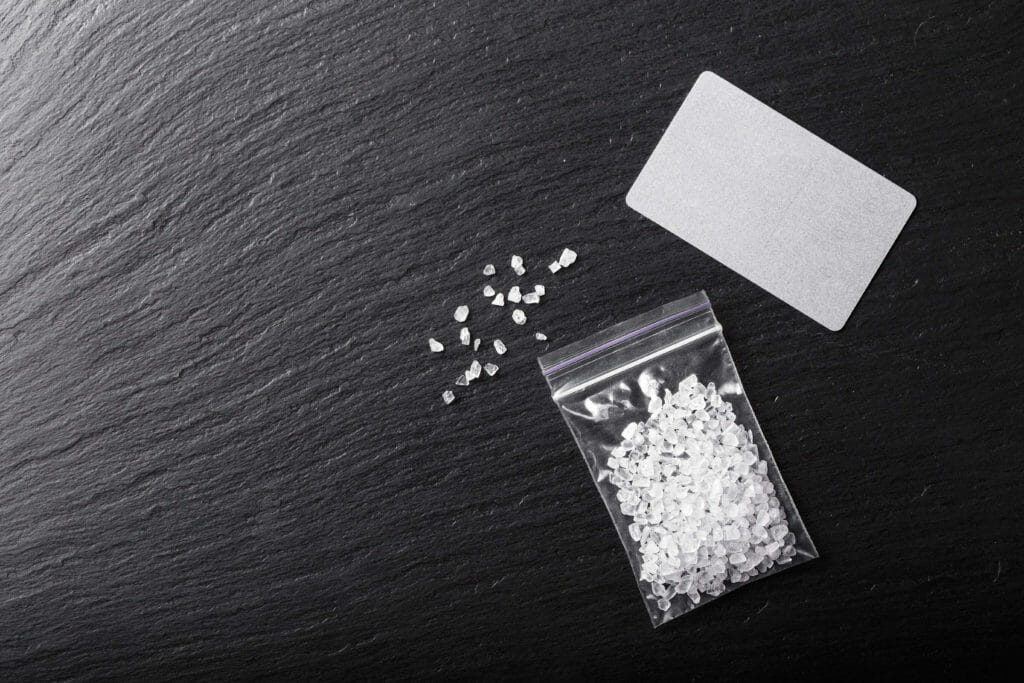What Does Meth Do to You?

Meth, the street name for a stimulant named methamphetamine, is a commonly used drug. In fact, according to the 2020 National Survey on Drug Use and Health, about 2.6 million people age 12 and older reported using meth in the prior 12 months — a number that equates to about 1% of the population. Worse, about 1.5 million people reported a substance use disorder involving meth, and nearly 24,000 people died in 2020 alone from a meth overdose.
If those numbers seem staggering, you aren’t the only one to feel that way. Despite the ongoing conversation around the drug, awareness about the prevalence of use and the drug’s impact on the user remain relatively low. Wondering how meth actually affects the user? Read on to find out.
How Does Meth Make You Feel?
Before we get into the physical and mental toll meth takes on the body, it’s crucial to understand how meth makes the user feel while using it. Meth is a stimulant, which means it’s a powerful upper that speeds up the body. In that sense, meth is similar to cocaine, but where meth differs from cocaine is in the duration of its high. Unlike other stimulants, the effect of meth can last up to 12 hours, depending on the amount consumed. Most meth users partake in the drug by swallowing, snorting, smoking, or injecting a powdered version. Meth also comes in crystal form (aptly named crystal meth), which users typically smoke.
In addition to addiction and a chemical dependency on the drug, the reason why someone might use meth is that they feel it provides them with energy. For some, that feeling includes sensations of alertness, confidence, and readiness. Some people also believe meth helps them lose weight, makes them more attractive, and elicits feelings of sexual arousal.
What Does Meth Do to You Physically?
As with most drugs, the effects of meth use can and will vary based on how frequently a person uses it and for how long. However, we know that prolonged use can have a devastating impact on the body. Meth can raise the user’s blood pressure, constrict blood vessels, accelerate heart rate, and increase cholesterol levels. As a result of these outcomes, cardiovascular disease is the second leading cause of death among meth abusers — trailing only accidental overdose.
In addition, meth weakens the body’s immune system, which makes it challenging for users to fight off germs. Further, meth users may struggle to stave off infection from pathogens (like COVID-19), aggravate conditions like HIV and hepatitis B and C, and experience kidney damage.
Perhaps the most noticeable physical change among meth users can be found in the mouth. Meth causes rapid tooth decay and gum disease, leading to jaw pain, headaches, and the unfortunate nickname “meth mouth.” Many meth users also suffer from extreme itching, which often leads to wounds or sores that are highly visible in areas uncovered by clothing.
What Does Meth Do to You Mentally and Emotionally?
Studies find meth significantly impacts the brain and the user’s mental and emotional health. About 40% of people who use meth experience psychosis, or “the presence of hallucinations, delusions, or both.”
Research shows that meth users are also much more likely to encounter a depressive disorder. For example, one study found, “The lifetime prevalence of mood disorder among participants with amphetamine dependence was 64%.” In another study, 25% of meth users reported a “lifetime of prevalence of substance-induced anxiety disorders.”
We know that meth triggers a rapid increase in dopamine, a neurotransmitter that plays a role in pleasure and how we feel. Unfortunately, this action can also lead to the destruction of dopamine-releasing brain cells in the long run.
It is common for meth users to experience memory loss, cognitive impairment, mood swings, feelings of irritability, and withdrawal symptoms when abstinent. Though meth use alters brain function, you should know that parts of what is lost may recover in time by quitting meth and maintaining a drug-free lifestyle.
Midwest Recovery Centers has treatment programs designed to help meth users
At Midwest Recovery Centers, we understand how challenging it can be to stop using meth once you start. That’s why we have an addiction treatment program created specifically for users who struggle with meth abuse. We offer an extended care treatment model that utilizes evidence based approaches to help the person find accountability and respect en route to recovery.
If you or a loved one are ready for treatment to help overcome meth abuse, we’re here when you need us. Start your recovery by contacting us now.
Reviewed and Assessed by
Taylor Brown, B.A.Com., CADC
Tim Coleman, M. of Ed.




